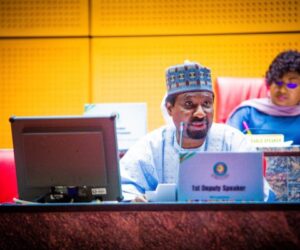Community isn’t just about where we live. It’s about connection, belonging, and being part of something bigger than ourselves. For people living with disability, those connections can often feel out of reach. Barriers like transport, communication, and social stigma can make everyday participation harder than it should be.
This is where NDIS allied health and other disability supports play such a vital role. They don’t just provide therapy sessions or in-home help, they open doors to real inclusion, whether that means joining a local sports team, speaking with confidence in a group, or simply enjoying an outing with friends. Professionals such as occupational therapists, psychologists, and exercise physiologists can tailor strategies to improve mobility, health, and overall wellbeing.
For those seeking additional support for musculoskeletal health or general wellbeing, The Chiropractic Co offers chiropractic services that can complement therapy and help people stay active and engaged in their communities.
SPONSOR AD
This blog dives into why community inclusion matters, the role of allied health, and how to make the most of your NDIS plan to fund meaningful activities.
Why Community Inclusion Matters
Health and wellbeing
Being part of a community is good for the body and the mind. Studies show that people who take part in social activities experience lower stress, better mood, and improved overall health. For someone with a disability, it might mean fewer feelings of isolation and a stronger sense of self.
Independence
Inclusion isn’t just about social events. It’s about developing the confidence to travel independently, handle daily tasks, and take part in decisions that affect your life. When people feel included, they are more likely to make choices that reflect their own goals and values.
Social networks
Friendships and peer support groups can change everything. They offer encouragement, reduce loneliness, and create opportunities for shared experiences. For many participants, these connections are just as valuable as therapy sessions.
Education and work opportunities
Community participation also opens doors to learning and employment. Whether it’s volunteering, enrolling in a short course, or finding a pathway to work, inclusion often leads to opportunities that help build independence and financial security.
How NDIS Allied Health Supports Community Participation
NDIS allied health plays a bigger role than many people realise. While most think of therapy sessions in a clinic, the real impact often shows up in daily life. These professionals design strategies that help people take part in the community. That might mean learning new skills, building confidence, or improving health so everyday activities feel possible again. With the right support, the gap between isolation and inclusion starts to close.
If you’re unsure how therapy fits into your plan, it’s worth understanding the NDIS Price Guidelines 2025: What You Need to Know Before Booking Therapy. Knowing what’s covered and at what rate can help you plan supports that are sustainable and realistic.
The Role of Different Allied Health Professionals
Occupational therapists work on daily living skills. They help people adapt their homes and routines so joining community activities feels easier. Psychologists provide tools to manage stress and anxiety, which makes social participation less overwhelming. Dietitians and podiatrists improve overall health, giving people the energy and mobility they need to stay active in their community.
- NDIS Exercise Physiologist: An NDIS exercise physiologist focuses on strength, mobility, and endurance. This isn’t about gym workouts, it’s about helping someone walk through their local market, join a dance class, or take part in a sport. One participant who lived with constant fatigue built a tailored program with their exercise physiologist. Over time, their stamina improved, and they joined a community walking group, boosting both health and social connection.
- NDIS Speech Pathologist: A NDIS speech pathologist helps people communicate more clearly. This can change everything about how someone takes part in life. When people can express their needs, join a conversation, or share ideas, they feel included. One young adult, after working with a speech pathologist, gained the skills to speak at a local youth forum. That confidence opened doors to new opportunities they had once thought were out of reach.
Using Your NDIS Plan to Fund Community Inclusion
Your NDIS plan is more than a budget. It’s a tool for independence. The challenge is knowing how to use it.
Capacity building vs. core supports
- Capacity building: Funds therapies and programs that build skills for long-term independence. This is where allied health often fits.
- Core supports: Cover day-to-day help, including support workers who can accompany participants to community activities.
How to word your goals
The way you phrase goals in your plan matters. Goals tied to community participation are more likely to receive funding for relevant support.
- Example goals:
- “I want to develop fitness so I can join a local sports club.”
- “I want to improve my communication skills so I can take part in community meetings.”
Working with your provider
A good provider will sit down with you to understand what inclusion means for you. Together, you can set goals and find the right mix of supports to meet them.
Finding the Right Support Providers
Choosing an NDIS Service Provider in Melbourne
If you are looking for an NDIS service provider in Melbourne, take time to compare a few options. First, check whether they are registered with the scheme. Ask how much experience they have with community participation and request examples of when they helped someone join a club or activity.
You can also explore providers like Roaming Therapy, who focus on making therapy accessible and flexible. They often share resources and guidance to help participants maximise their plans and achieve inclusion goals.
How Disability Home Care Services Can Help
Many people think disability home care services only cover daily tasks. They often do much more, including community access support. A support worker can come with you to events and classes, help plan travel routes, or practice using public transport. They can support you while you learn new skills and routines so you gain confidence to go out on your own later. Ask services what community outings they offer and how they match workers to your interests. Meeting a worker first helps you see if they are a good fit.
Practical Toolkit for Community Inclusion
Creating a clear plan makes it easier to use your NDIS support in ways that lead to real participation. This toolkit can guide you through the process.
1. Sample NDIS goals
Your goals should link to the things you want to do in the community, not just the skills you want to build. For example, you might say,
“I want to develop social skills so I can attend community group sessions.”
“I want to improve endurance so I can take part in recreational sports.”
“I want to build confidence to travel independently to local activities.”
Goals like these make it clear how allied health or support services connect to your everyday life.
2. Provider interview checklist
When meeting an ndis service provider melbourne or other professionals, ask questions that help you decide if they are the right fit. You might ask,
“Do you have experience supporting people in community settings?”
“How do you tailor services to participant goals?”
“What training do your support workers have?”
These answers can show if the provider understands and values your goals.
3. Community activity planner
Think of this as your personal roadmap. Start by writing down your interests, maybe art, sport, music, or volunteering. Then note the barriers that make it harder, like transport, stamina, or communication. Next, match these challenges with support. For example, an ndis exercise physiologist might help with fitness, while an ndis speech pathologist can work on communication. Finally, look for local options in your area, such as disability-friendly gyms, social clubs, or community art programs. With this planner, you can turn ideas into real steps toward inclusion.
Building a Life of Belonging
Community inclusion is about much more than showing up. It’s about feeling valued and connected. Allied health plays a key role in making this possible.
Whether it’s the structured support of an NDIS exercise physiologist, the communication help from an NDIS speech pathologist, or the day-to-day support of disability home care services, each piece contributes to building independence and belonging.
For those searching for an ndis service provider melbourne, take the time to find someone who understands your goals and sees inclusion as a shared journey. With the right mix of support, barriers start to fall away, and genuine participation becomes not only possible but enjoyable.








